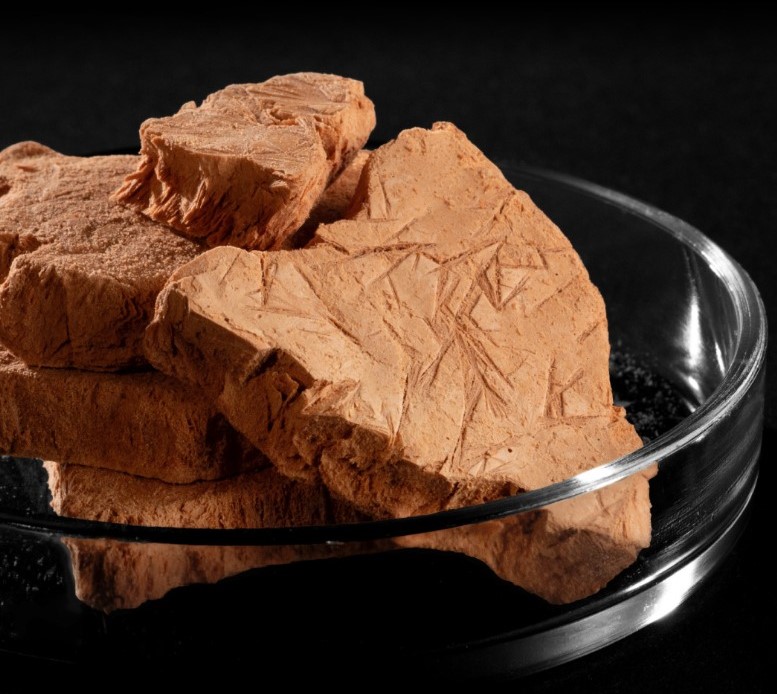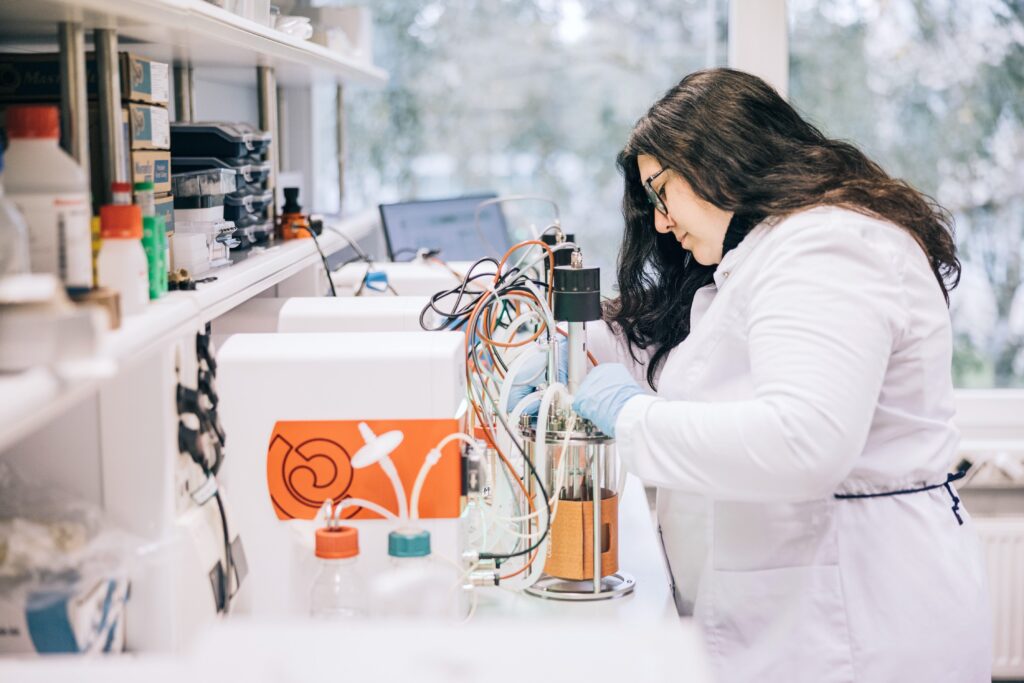ÄIO, an Estonian biotechnology startup that develops food products from by-products of the wood and the agricultural industry, has raised €1 million from investors to replace the environmentally depleting oils currently used in the food industry with sustainable full-value alternatives.
ÄIO, founded in 2022 by TalTech bioengineers Petri-Jaan Lahtvee and Nemailla Bonturi, produces edible fats and oils from agricultural and wood industry side-streams, using results from years of biotech research. The company’s goal is to make the food industry more sustainable and provide a better use of the natural resources.
Sawdust turned into food
Lahtvee said the current food system was responsible for more than a third of greenhouse gas emissions. “Compared with livestock farming, plant-based meat requires 47-99% less arable land, emits 30-90% less greenhouse gases and uses 72-99% less water,” he said in a statement.
But, according to Bonturi, palm and coconut oils that are used to make plant-based meat alternatives, do not deliver the same taste and mouthfeel as animal fat. “Also, the production of these oils is not sustainable, they are unhealthy and can cause allergic reactions,” she noted.
ÄIO’s production process is based on research carried out in Estonia, through which industrial side-streams are transformed into food products through a fermentation process, similar to brewing beer or raising bread with yeast. The fermentation process produces fats rich in healthy fatty acids and antioxidants.
Fermentation uses the “red bug” microbe created and patented by Bonturi, which turns side-streams of agriculture and other industries into fats and oils. “In the same way that we make kombucha, yogurt, bread and beer, we can turn sawdust or other low-value biomass into valuable and healthy ingredients. Our ‘red bug’ cannot turn water into wine, but it can turn sawdust into food,” Bonturi said.
“As scientists, we were excited that years of research resulted in a real product that could revolutionise the entire food industry and consumer experience,” Lahtvee added.

“Very futureproof”
According to Mika Kukkurainen, the founder of Helsinki-based Nordic Foodtech VC, one of the investors of ÄIO, the global food industry is constantly looking for new sustainable and healthy alternatives to replace palm oil and coconut oil, and “the fund was very excited to find such a team and their innovations right in the TalTech lab”. “Turning low-value side-streams into something so valuable is very futureproof and has great scalable business potential,” he said.
For the venture fund, it is their first investment in the Baltic states.
ÄIO plans to increase its production capacity, test products in cooperation with food industry and apply for novel food permits to enter the European market. By 2026, it is planning to start the production on an industrial scale. The company said one of its products can also be used in cosmetic products and household chemicals, replacing lubricants and surfactants derived from petroleum or palm oil.

